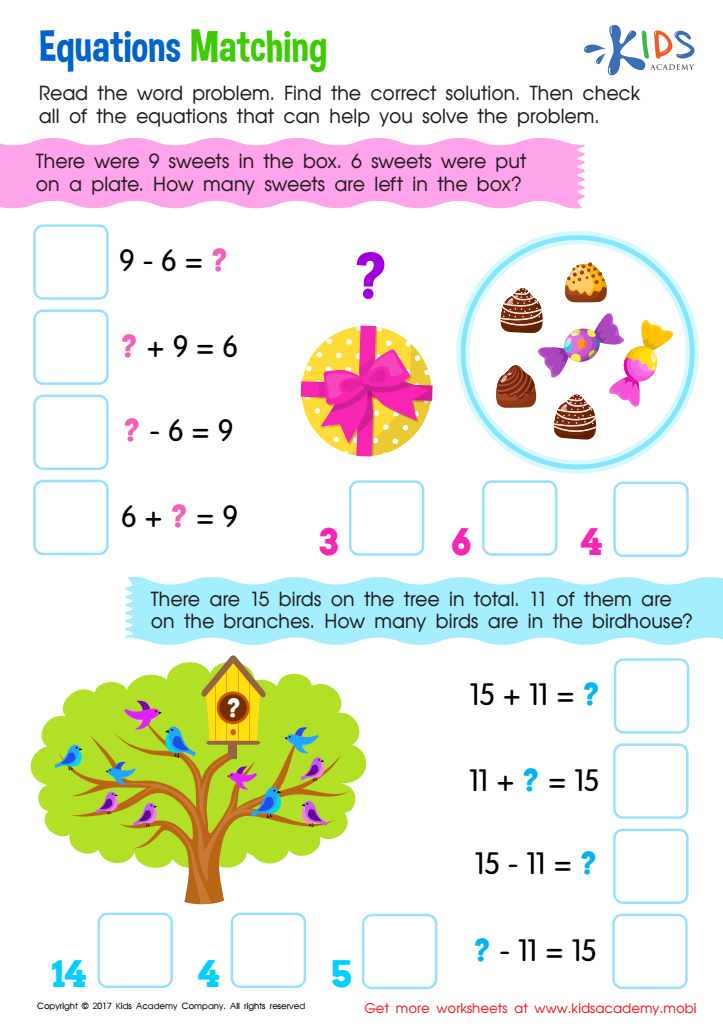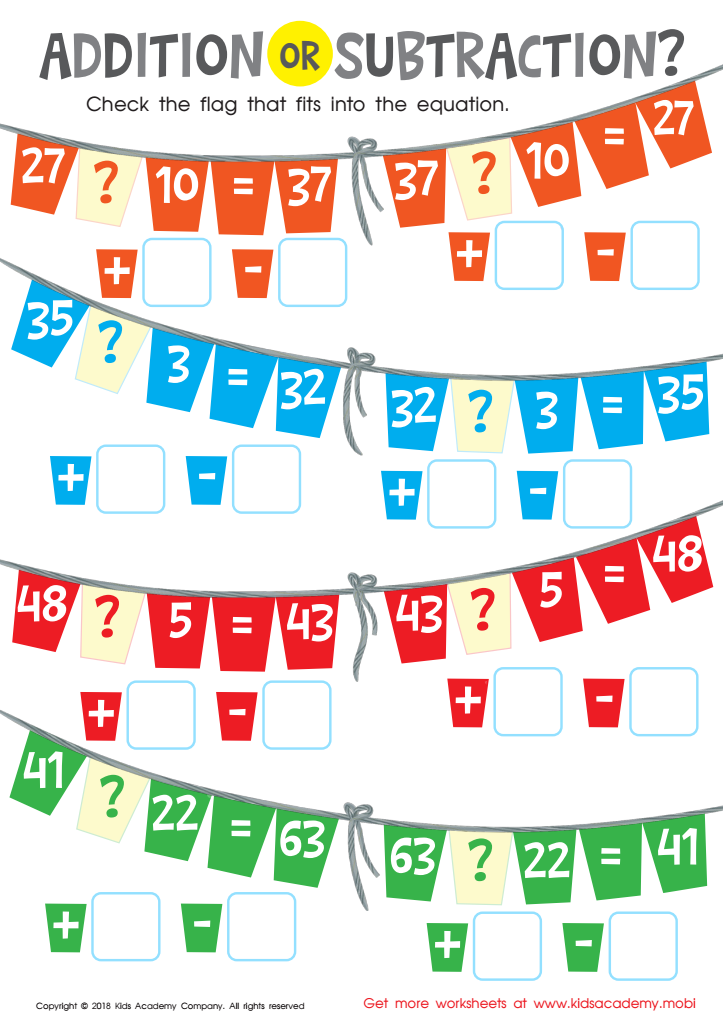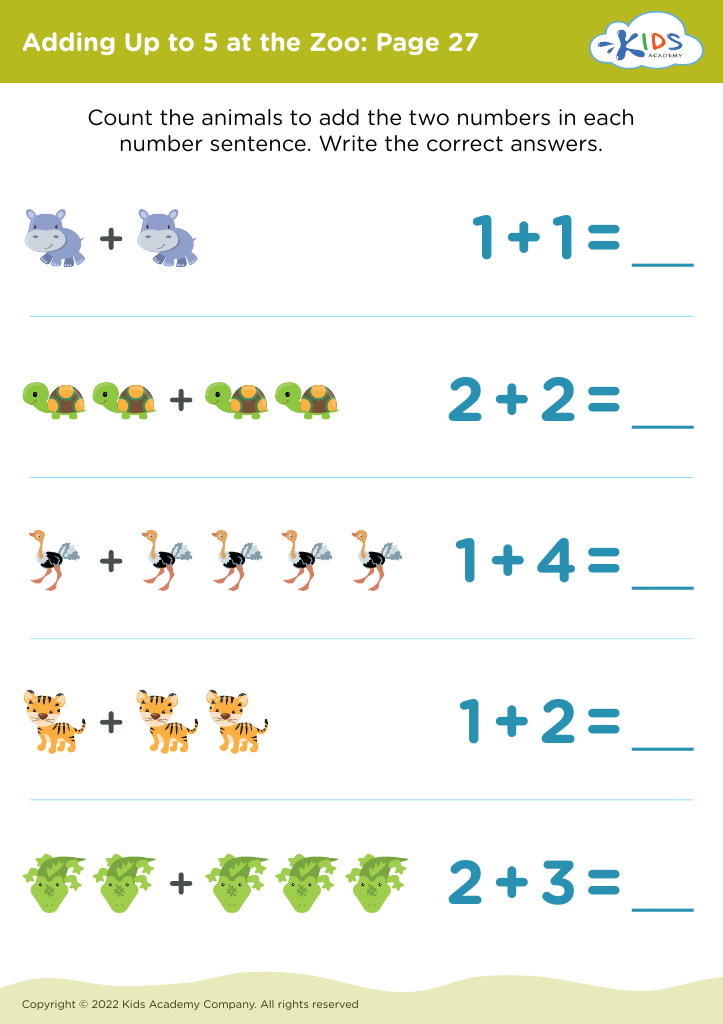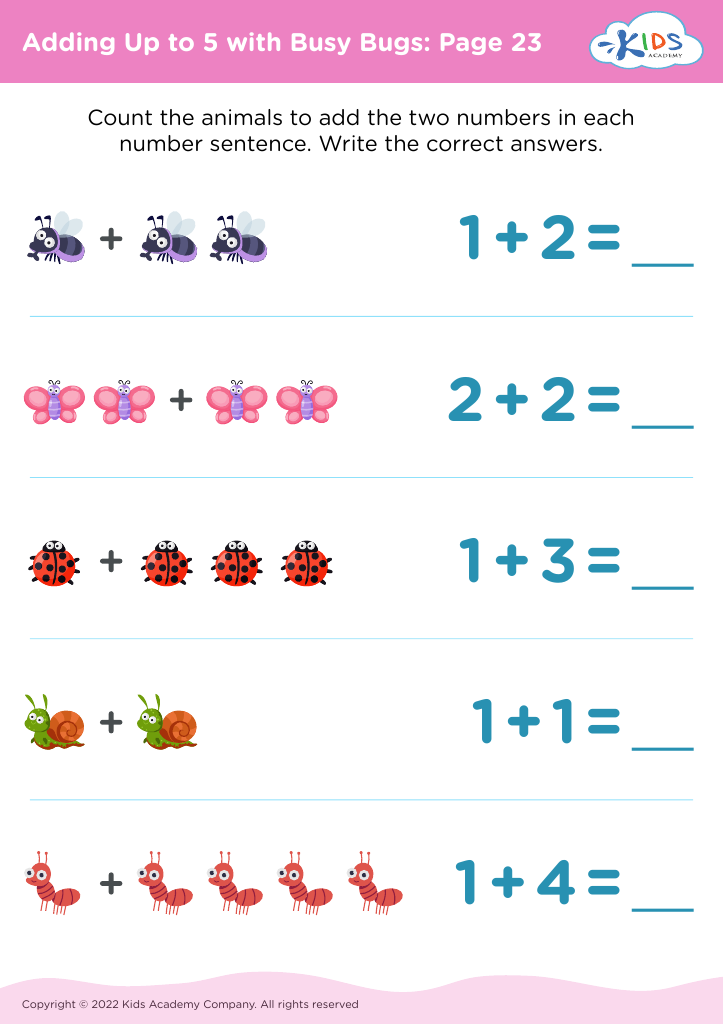Mathematical reasoning Addition Worksheets for Ages 5-6
6 filtered results
-
From - To
Explore our engaging Mathematical Reasoning Addition Worksheets for children ages 5-6! Designed to develop crucial skills in early math, these worksheets make learning addition fun and interactive. Each activity encourages critical thinking and problem-solving, helping young learners grasp the concepts of addition through real-life scenarios. With a variety of exercises tailored to different learning styles, these resources are perfect for reinforcing math skills at home or in the classroom. Our printable worksheets are easy to access and provide hours of educational enjoyment. Help your child build a solid foundation in mathematics while honing their reasoning skills today!


Tricky Problems Worksheet: Part 1


7 Continents and 7 Seas Worksheet


Equations Matching Word Problems Worksheet


Addition or Subtraction? Worksheet
Mathematical reasoning in addition is crucial for children aged 5-6, as it lays the foundation for their future mathematical understanding and problem-solving skills. At this stage, children begin to explore the concepts of numbers and operations, and effective reasoning helps them develop a deeper understanding of how numbers work together.
Fostering mathematical reasoning promotes critical thinking. When children learn to justify their answers or explain their thought process, they engage in cognitive functions that help build resilience and adaptability in learning. This skill also encourages children to ask questions, recognize patterns, and find connections between different concepts, essential for their overall cognitive development.
Furthermore, mathematical reasoning in addition supports the building of confidence. When parents and teachers encourage children to explore various strategies for solving problems, it helps them understand that there can be multiple ways to find a solution. This flexibility reduces anxiety around mathematics and instills a positive attitude towards learning.
Lastly, strong reasoning skills in early math not only aid academic success but also empower children for practical applications in daily life. Engaging with math daily can enhance logical thinking, which is valuable beyond the classroom, making it imperative for caregivers to prioritize mathematical reasoning at this early age.
 Assign to My Students
Assign to My Students






.jpg)















